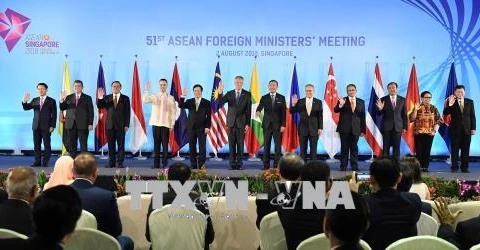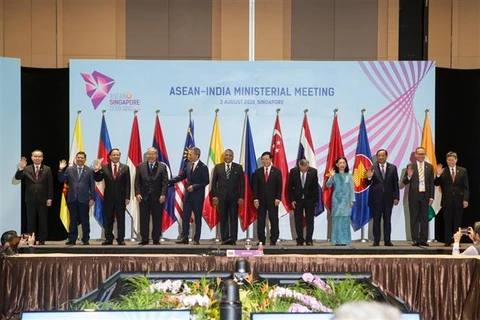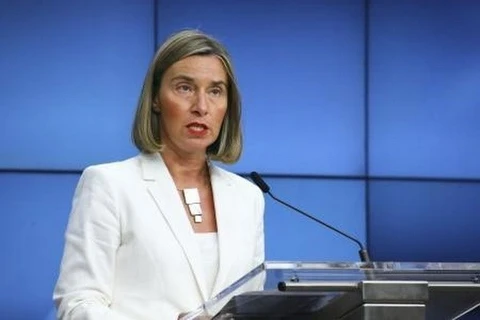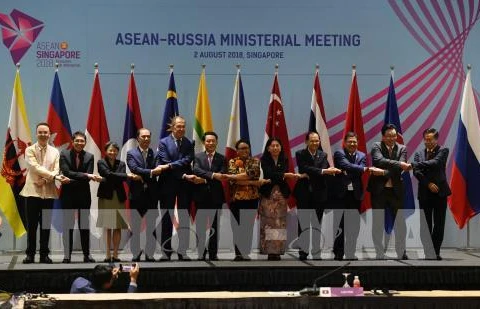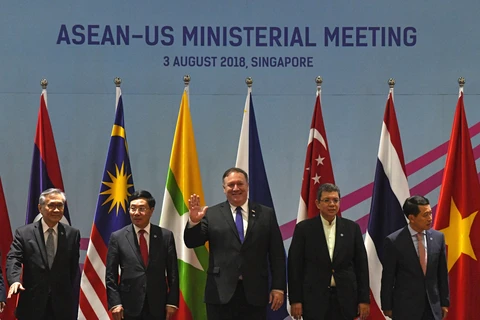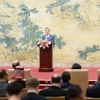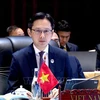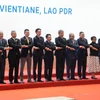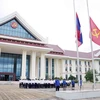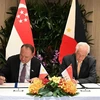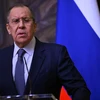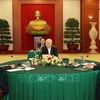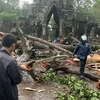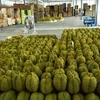Singapore (VNA) – Foreign ministers of ASEAN countries and three partner nations - China, the Republic of Korea (RoK) and Japan (ASEAN+3) - met in Singapore on August 4, agreeing on the need for ASEAN+3 to continue contributing to economic connectivity and opening trend in the region.
At the 19th ASEAN Plus Three Foreign Ministers’ Meeting, the diplomats also reached high consensus on the necessity to finalise the Regional Comprehensive Economic Partnership (RCEP) agreement as schedule.
The ministers of China, Japan and the RoK emphasised the ASEAN+3’s role in promoting free trade, particularly in the context of growing trade protectionism around the world.
Chinese Foreign Minister Wang Yi said with the emergence of protectionism, the ASEAN+3 cooperation has changed and clearly reflected the regional countries’ aspiration and resolve to promote free trade and maintain multilateralism. He affirmed that the ASEAN+3 needs to be promoted to become the main channel to build an East Asia Economic Caucus (EAEC) and an open world economy.
For her part, RoK Foreign Minister Kang Kyung-wha said the capability of coordinating with one another towards a common goal, especially response to crises, is particularly important. She warned that the rise of trade protectionism and anti-globalisation in major countries are escalating tensions and threatening the aspiration for sustainable economic growth.
Meanwhile, Japanese Foreign Minister Taro Kono said his country wants to soon finalise talks on the RCEP to create comprehensive, balanced and high-quality economic rules.
At the meeting, the participating ministers also recognised the implementation outcomes of the ASEAN Plus Three Cooperation Work Plan 2018-2022 and the recommendations in the East Asia Vision Group II Report.
They said it is necessary to continue promoting concrete and practical cooperation activities in the fields of common concern and priorities, including the fight against terrorism and violent extremism, marine cooperation, economic and regional connectivity, macro-financial stabilisation, small- and medium-sized enterprise development, health care, climate change, natural disaster response, food security, and cultural and people-to-people exchanges.
The meeting also underlined the importance of the ASEAN+3 as a tool towards the long-term goal of building a community in East Asia. They affirmed that after 20 years of development, the ASEAN+3 has become an indispensable part of the regional cooperation structure.–VNA
VNA

